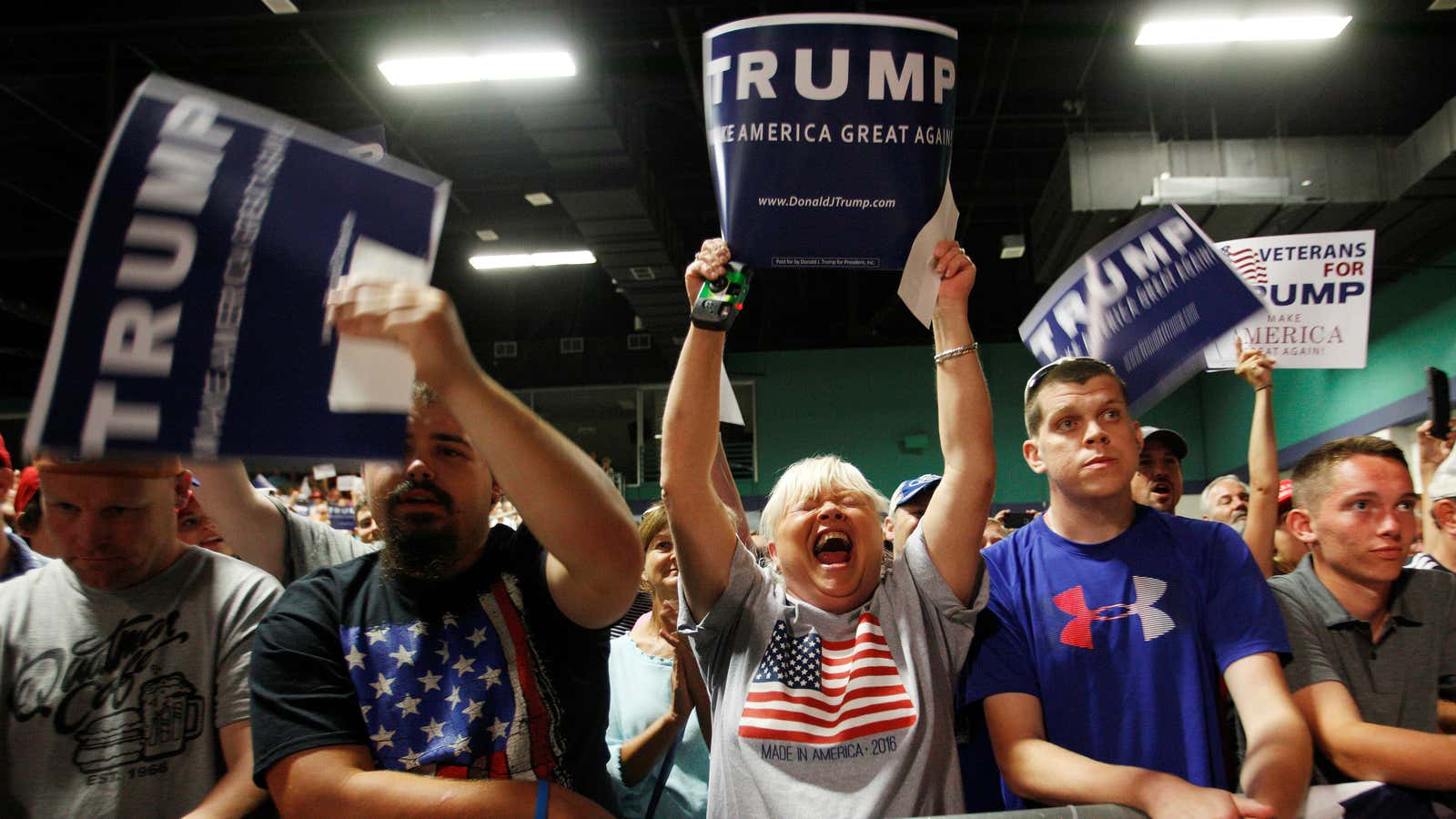Quick—think of a Trump supporter. The stereotype many will conjure is of an aging, blue-collar, white guy in a ”Hillary for prison” shirt, who’s losing out economically—and freaking out about it more by the day.
Well, think again. Yes, the Republican presidential candidate’s fans feel economic anxiety, but that feeling is not restricted to working class supporters.
“[E]xtremely affluent Trump supporters report almost the same level of economic insecurity as lower-middle class Americans who do not like Trump,” writes Jonathan Rothwell, an economist at Gallup, in a recent mega-analysis.
To evaluate economic anxiety, Gallup asked respondents 10 questions, like ”Did you worry yesterday that you spent too much money, or not?” and “Do you have enough money to buy the things you need, or not?” The polling company averaged its results for people who say they hold favorable and unfavorable views of Trump.
Things get even more interesting when you break the results down by income bracket.
As you can see below, wealthy Trump supporters—those with household incomes that exceed $200,000 a year—report economic anxiety levels of around 42. That’s around the same level as anti-Trump Republicans whose household income is a tier lower, between $100,000 and $200,000 a year.
Even more astonishingly, these Trump-backers worry about their finances at about the same level of intensity, on average, as non-Trump-supporters from all parties whose families earn less than half as much as they do (i.e. between $50,000 and $100,000 annually).
It’s not just the fat cats. Trump fans in the second-richest bracket—with household incomes between $100,000 and $200,000—feel more anxious about money than poorer, anti-Trump Americans (ie. in the $50,000-to-$100,000 bracket).
Where does this anxiety come from?
Disparities in economic anxiety between Trump fans and those who dislike him can’t be explained by race, age, gender, or education level, according to the Gallup analysis.
Cost-of-living, debt, and other financial factors don’t explain Trump fans’ extra economic anxiety, either. Adjusting for cost of living actually increases Trump supporters household incomes, relative to non-fans, because they tend to live in cheaper geographic areas. Controlling for debt-to-income ratios in respondents’ zip codes didn’t make a meaningful difference. Neither did adjusting for change in home value, mortgage interest levels, or reliance on capital income, writes Rothwell.
In general, Trump supporters aren’t struggling economically more than anyone else. By some metrics, they actually make a lot more that everyone else, including other white Republicans (when adjusted for factors like education level and age), according to Rothwell’s analysis. They’re not more prone to being unemployed or retired than other Americans. And their jobs are not uniquely threatened by trade competition.
The Gallup analysis offers few clues, although it does note that Trump-backers are more likely to be self-employed than non-fans. Trump fans also tend to live in areas that are whiter and with higher rates of disability.
Whatever the underlying reasons behind this discrepancy, such anxiety might explain why Trump fans differ with non-supporters over one of the biggest issues of the US presidential election: whether America needs to be made great again.
